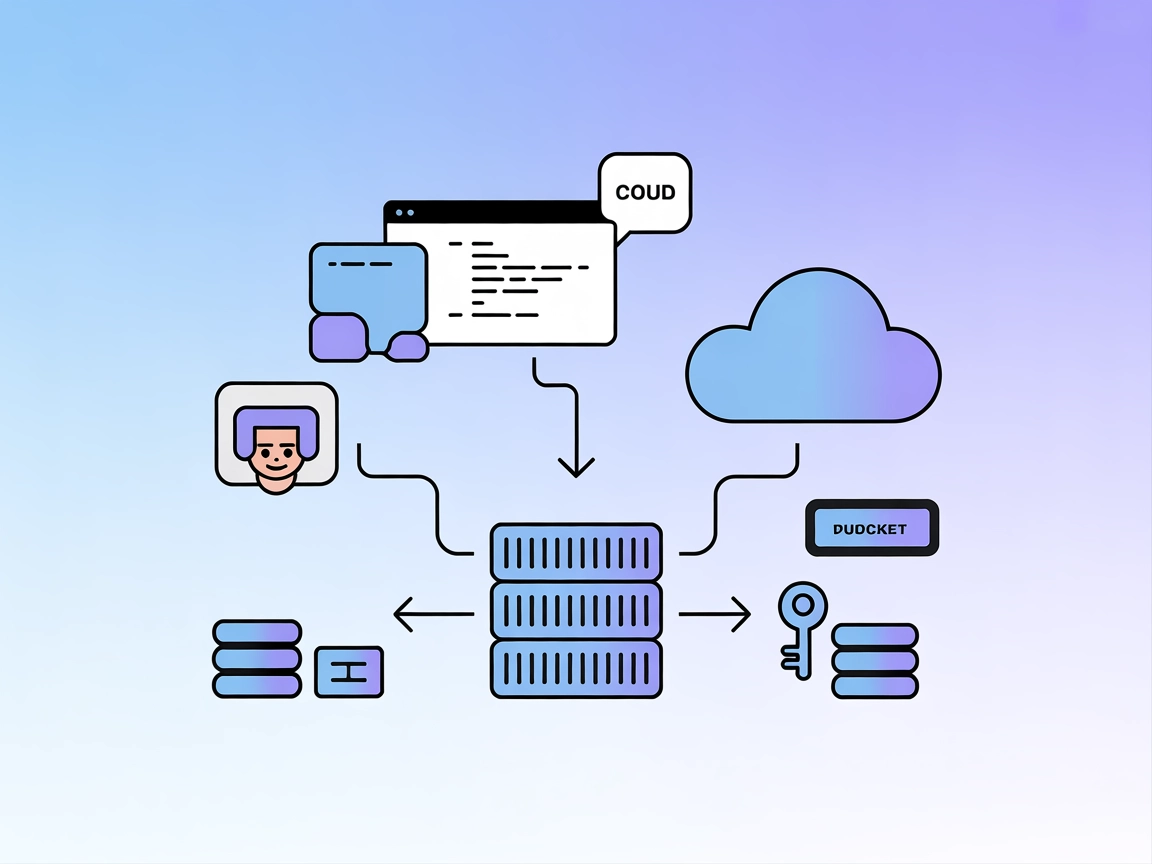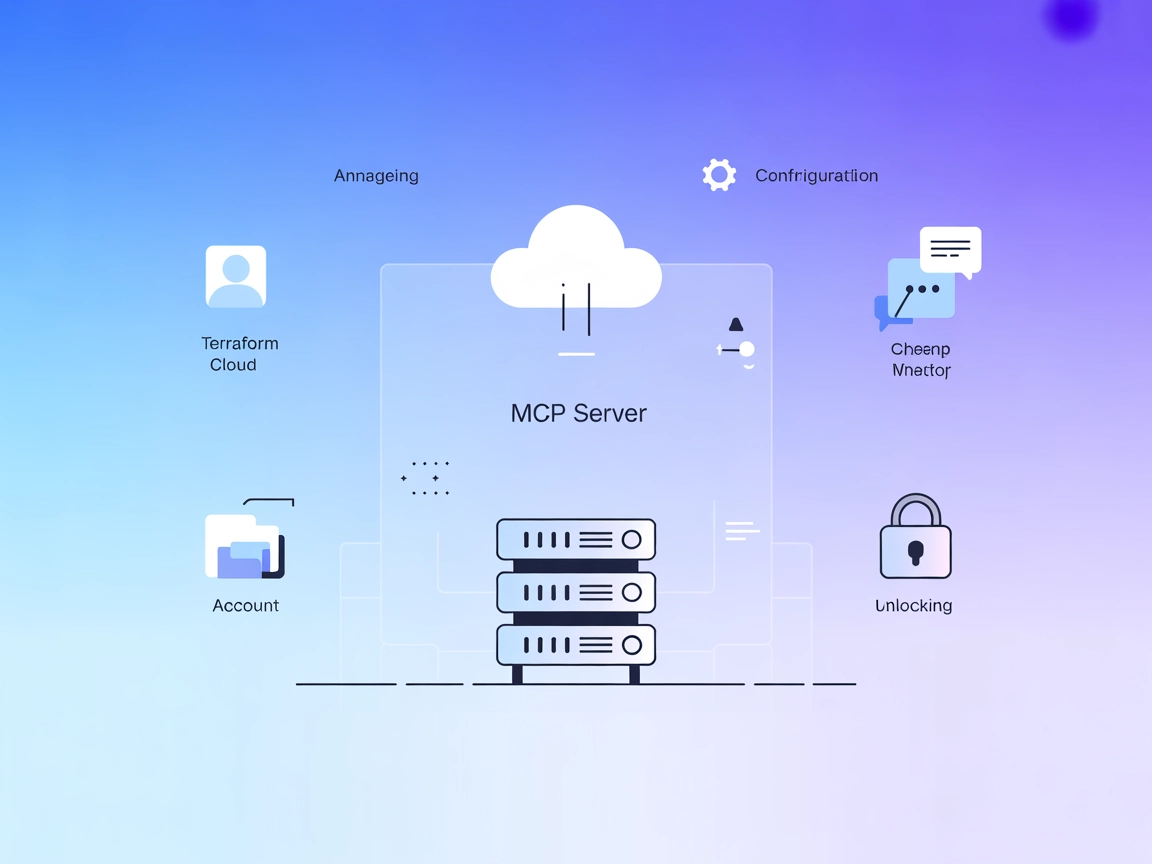
Azure MCP Server Integration
The Azure MCP Server enables seamless integration between AI agents and Azure's cloud ecosystem, allowing AI-powered automation, resource management, and workfl...

Empower your AI workflows with the Pulumi MCP Server—programmatically deploy, manage, and query cloud infrastructure right from your AI-driven tools and IDEs.
FlowHunt provides an additional security layer between your internal systems and AI tools, giving you granular control over which tools are accessible from your MCP servers. MCP servers hosted in our infrastructure can be seamlessly integrated with FlowHunt's chatbot as well as popular AI platforms like ChatGPT, Claude, and various AI editors.
The Pulumi MCP Server acts as a bridge between AI assistants and the Pulumi infrastructure-as-code platform. By exposing Pulumi operations through the Model Context Protocol (MCP), this server enables AI-powered development workflows, allowing clients (such as Claude Desktop, VSCode, and Cline) to interact with cloud infrastructure programmatically. Using this server, AI assistants can perform tasks like deploying resources, managing stacks, querying state, and automating routine infrastructure operations. This integration streamlines infrastructure management, reduces manual intervention, and empowers developers to control cloud environments directly from their preferred AI-enhanced tools.
No information about prompt templates was found in the repository.
No specific MCP “resources” are listed or exposed by the Pulumi MCP Server in the repository.
No explicit tools are enumerated in the documentation or visible in the repository’s surface files. The main functionality appears centered around running Pulumi operations via Docker.
No setup instructions for Windsurf are provided in the repository.
PULUMI_ACCESS_TOKEN.mcpServers configuration:{
"pulumi-mcp-server": {
"command": "docker",
"args": [
"run",
"-i",
"--rm",
"--name",
"pulumi-mcp-server",
"-e",
"PULUMI_ACCESS_TOKEN",
"dogukanakkaya/pulumi-mcp-server"
],
"env": {
"PULUMI_ACCESS_TOKEN": "${YOUR_TOKEN}"
},
"transportType": "stdio"
}
}
Securing API Keys:
Store your Pulumi access token in an environment variable. In your configuration, use:
"env": {
"PULUMI_ACCESS_TOKEN": "${YOUR_TOKEN}"
}
No setup instructions for Cursor are provided in the repository.
PULUMI_ACCESS_TOKEN.{
"pulumi-mcp-server": {
"command": "docker",
"args": [
"run",
"-i",
"--rm",
"--name",
"pulumi-mcp-server",
"-e",
"PULUMI_ACCESS_TOKEN",
"dogukanakkaya/pulumi-mcp-server"
],
"env": {
"PULUMI_ACCESS_TOKEN": "${YOUR_TOKEN}"
},
"transportType": "stdio"
}
}
Securing API Keys:
See the above env usage example.
Using MCP in FlowHunt
To integrate MCP servers into your FlowHunt workflow, start by adding the MCP component to your flow and connecting it to your AI agent:

Click on the MCP component to open the configuration panel. In the system MCP configuration section, insert your MCP server details using this JSON format:
{
"pulumi-mcp-server": {
"transport": "streamable_http",
"url": "https://yourmcpserver.example/pathtothemcp/url"
}
}
Once configured, the AI agent can use this MCP as a tool with access to all its functions and capabilities. Remember to change “pulumi-mcp-server” to the actual name of your MCP server and replace the URL with your own MCP server URL.
| Section | Availability | Details/Notes |
|---|---|---|
| Overview | ✅ | |
| List of Prompts | ⛔ | None found |
| List of Resources | ⛔ | None found |
| List of Tools | ⛔ | None found |
| Securing API Keys | ✅ | Provided via env in configuration |
| Sampling Support (less important in evaluation) | ⛔ | Not mentioned |
ROOTS support: Not documented
Sampling support: Not documented
Based on the information found, the Pulumi MCP Server repository is functional and integrates Pulumi with MCP clients, but lacks documentation on prompts, resources, and explicit tool definitions. For a developer seeking a turnkey, well-documented MCP server, this repository would score moderately, as it mainly provides setup details and basic use cases.
| Has a LICENSE | ⛔ |
|---|---|
| Has at least one tool | ⛔ |
| Number of Forks | 2 |
| Number of Stars | 3 |
Our overall rating: 3/10 – The repository provides a basic bridge to Pulumi via MCP but lacks documentation, explicit resource/tool definitions, and licensing, making it less suitable for production or broader adoption without further development.
The Pulumi MCP Server is an integration layer connecting AI assistants and development tools to the Pulumi infrastructure-as-code platform via the Model Context Protocol (MCP), enabling programmatic management of cloud resources.
You can deploy, update, or destroy cloud infrastructure, automate stack management, and query resource states directly from AI-powered environments or your FlowHunt flows, all without leaving your IDE or chat interface.
Yes. Always store your PULUMI_ACCESS_TOKEN in environment variables and reference it in your MCP configuration. Never hard-code secrets in your flows or configurations.
No. The repository currently focuses on operational integration and does not provide prompt templates, explicit tool/resource listings, or advanced documentation.
The Pulumi MCP Server is documented for use with Claude Desktop and Cline, and can also be integrated into FlowHunt flows. Windsurf and Cursor setup is undocumented.
Automated cloud infrastructure deployment, routine updates, stack management, state querying, and integrating infrastructure operations into conversational or code-centric AI workflows.
Integrate Pulumi’s infrastructure automation into your FlowHunt flows or AI-powered IDEs to streamline DevOps and cloud operations without manual intervention.

The Azure MCP Server enables seamless integration between AI agents and Azure's cloud ecosystem, allowing AI-powered automation, resource management, and workfl...

The ModelContextProtocol (MCP) Server acts as a bridge between AI agents and external data sources, APIs, and services, enabling FlowHunt users to build context...

Integrate AI assistants with the Terraform Cloud API using the Terraform Cloud MCP Server. Manage infrastructure through natural language, automate workspace an...
Cookie Consent
We use cookies to enhance your browsing experience and analyze our traffic. See our privacy policy.